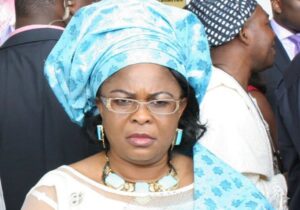The Premier League has admitted to clubs that video assistant referee delays grew by more than 50% last season as it plans to confirm a video refereeing “improvement plan” at its annual general meeting on Thursday.
The AGM in Harrogate will be a combustible and consequential event, with a vote on Wolves’ proposal to scrap VAR one of several divisive topics under discussion. The gathering also comes just days before the Premier League is to defend against a legal claim brought by the champions, Manchester City.
While it is anticipated that Wolves will fall short of the 14 votes needed to make changes to Premier League rules, submissions made by the league in response to the club seem to confirm a central premise of the complaint; that VAR has caused too much disruption to the game.
According to the briefing written by the league’s director of football, Tony Scholes, and seen by the Guardian, the average delay on a VAR check lasted 64 seconds in the 2023‑24 season, up from 40 seconds the season before. Scholes attributes the lengthened delays to officials taking more time to ensure decisions are correct after the notorious failure to award Liverpool a legitimate goal in their 2-1 defeat at Tottenham last September.
In their own six-page briefing, which has been distributed to clubs before the AGM, Wolves argue that “the use of VAR has led to increased disengagement among the Premier League’s match-attending fans due to its adverse effects on the match experience”, and that “the current version of VAR is incompatible with the subjective nature of football laws, risking the league’s standing as the best in the world”.
In the league’s response, Scholes argues that the planned introduction of semi-automatic offside technology should cut delays next season. He also warns of the costs of replacing VAR and reveals a planned change in official language, with the phrase “clear and obvious” to be retired as a benchmark for VAR interventions. Instead the term “referee’s call” will be introduced, with the intention of clarifying the primacy of any on-field decision. Such decisions should only be overturned in the event that they are “clearly wrong”, according to the new terminology.
In other developments, plans to reform the league’s equally controversial profit and sustainability rules are to be pushed back. Officials had expressed their intention to agree new rules this summer, with plans involving an “anchoring” scheme at their heart. This proposal would involve limits imposed on player‑related expenditure, whereby the league’s richest clubs could only spend a fixed multiple of the earnings of the division’s bottom side.
While anchoring was approved in principle by clubs in a vote in April, it has since encountered pushback from the Professional Footballers’ Association which fears the move could lead to a de facto salary cap and has hired legal representation to challenge it. Now the Premier League has stepped back from putting the full range of financial regulations to a confirmatory vote at the AGM and instead will trial anchoring and squad cost ratio measures in shadow form from next season.
League sources argue this is an improvement on the previous proposal, giving clubs a chance to assess strengths and weaknesses before a final vote is taken next year.
The independent tribunal that will hear City’s case against the Premier League, whereby the four-in-a-row champions are challenging everything from sponsorship rules to the means by which decisions are taken by the competition, is expected to last two weeks.










More Stories
Amorim insists Fernandes not leaving Manchester United amid Madrid reports
How debt burden pushed Nigerian boxer Segun Olanrewaju to a fight that took his life
Nigeria Taekwondo Federation boss, Abdullahi Saidu dies at 53